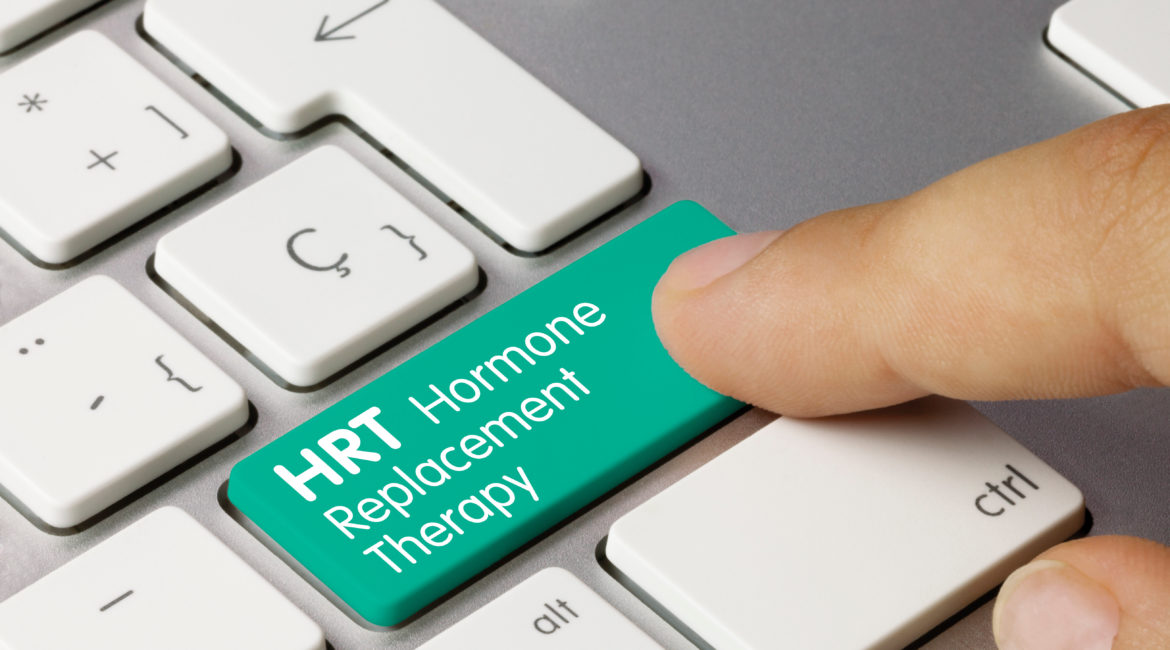Do you feel old for your age already? Sure, we all long for the days of childhood where all you had to do was play outside with your friends all day long, you could eat anything you wanted but never gain a pound and fell hard & fast asleep the minute your head hit the pillow, every night.
Of course, it isn’t possible to live or feel like a child again once you get older – and we don’t think anyone wants to have to experience puberty again. But there are signs and symptoms that many Americans associate with “just getting older” that are caused by something entirely different.
Men and women both may joke that they, “feel older than they look,” but the underlying hormonal imbalances that may lead people to feel old beyond their years are no joking matter. Most everyone knows about menopause for women, but many don’t know about the corresponding andropause in men.
Each of these begins to happen as men and women both age beyond their childbearing years, and their endocrine system begins producing less estrogen, progesterone, and testosterone. While these are looked upon as a normal part of getting older, the resulting signs and symptoms that come with a reduction in those crucial hormones that help us define and feel like men or women don’t have to be a way of life just because you are getting older.
Furthermore, there are many health issues that can lead to lower or imbalanced hormone levels that have nothing to do with aging. This is because our body is a very fine-tuned machine, and the hormones that regulate and control our body come in such small amounts that even a tiny imbalance can drastically affect your life in negative ways.
Regular stressors that have become a part of our daily lives like high caffeine intake, poor eating habits, lack of sleep, a lack of exercise, and many other health issues can lead to imbalances that make us feel completely out of sorts. Thankfully there is a way to treat hormonal imbalances so that you may not go back to feeling like a kid again, but you can at least feel the way you are supposed to.
Summary
There are many different signs and symptoms which may be indicative of a hormone imbalance, and they are different for men and women. For men, low testosterone may cause issues such as difficulty maintaining or adding lean muscle mass, increased weight gain, memory loss, low sex drive, depression, hair loss, lack of energy, erectile dysfunction, or irritability. Testosterone Replacement Therapy may come in the form of oral pills, gels, or injections that may be taken weekly or every 2-4 weeks.
For women, perimenopause, menopause, and postmenopause may lead to drastic hormonal changes, as can many different health-related issues that affect her body’s regulation of progesterone, estrogen, and even androgen and testosterone. Women may experience mood swings, hot flashes, constipation or diarrhea, irregular menstrual cycle, irritability, infertility, pain during menstruation, low libido, irregular weight gain or loss, insomnia, osteoporosis, excessive hair growth, rashes, or vaginal dryness. Women may treat these hormonal imbalances with medications such as Eflornithine, Letrozole, Clomiphene, gels, creams, or treatments containing estrogen, progesterone, and even anti-androgen medicine.
Signs for Men
Men are more likely to overlook or be confused by hormone imbalances than women, and this can happen for many reasons. Firstly, men are typically often not as in tune with their bodies as women are. Many men also were raised with the mentality of not complaining and just “powering through” injuries or illnesses, so even though they are displaying the signs and symptoms listed below they may just ignore them.
Additionally, many men have never heard of andropause, the male version of menopause that can begin to occur in males as early as the age of 30 years old. While women have a fairly well-defined timeline for when they will experience perimenopause and menopause, andropause in males is not nearly as well defined.
Some men report a rapid onset of the signs and symptoms listed below starting in their 30s. Others begin to show the signs and symptoms in their 40s-50s, with a far more gradual onset. Whenever and however the symptoms begin to appear, most males begin to see a reduction in testosterone production of about 1-2% per year starting in their 30s, which can lead to a loss of confidence, memory loss, a harder time building muscle, quicker fat gain, loss of sexual libido and other symptoms that we will list further below.
The results of these symptoms can have detrimental effects on a male in both his mental and physical well-being, but it doesn’t have to be that way. What was once seen as merely “part of getting old” can now be remedied with Hormone Replacement Therapy for males, which can get you back to feeling like your normal self in no time.
Signs of Hormone Imbalance for Men
- Low sex drive
- Fatigue
- Reduced lean muscle mass
- Irritability
- Erectile dysfunction
- Depression, a loss of confidence or sense of self-worth
- Increased weight and fat gain
- Memory loss
Signs for Women
Women possess the profound ability to give life, something that is truly awe-inspiring and a beautiful thing. Because this ability is the most essential part of our continuation as a species (or any species aside from seahorses and sea dragons), the female life cycle can be divided into three parts: pre-child bearing age, child-bearing age, and post-child bearing age.
While most of the male body is driven by testosterone, especially in regards to their biological urges and ability to have children, the female body is driven by estrogen, progesterone, and even testosterone. The levels of these hormones for females can cause dramatic changes, especially in the child-bearing and post-child bearing years.
These stages of a woman’s life can be divided into several sections in terms of how their hormone balances change. Premenopause makes up the majority of a woman’s life and is the time when the woman’s body is focused on her reproductive functions. This stage lasts from when she gets her first menstrual cycle until she gets her last. A woman’s hormones are typically the highest from her teenage years and into her 20s but will begin to plateau and even reduce in her 30s to 40s.
Perimenopause is the stage that begins to mark the end of a woman’s reproductive cycle and can last anywhere from 2-10 years. This stage causes great strains on a woman’s physical and mental state, as this stage is marked by fluctuating hormone levels. Hot flashes and high emotional states are the hallmark signs of perimenopause, which are caused by the beginning stages of declining hormones in her body.
Menopause marks the end of a woman’s reproductive cycle and sees her body begin to produce lower levels of estrogen and progesterone, as her body ceases to produce new eggs. For many women, the hot flashes and mood swings that began to emerge during perimenopause will continue throughout this phase but will begin to dwindle away over the following year.
Post-menopause is the stage in which a woman no longer possesses the ability to naturally produce eggs and become pregnant. Most women find that the mood swings and hot flashes subside during this stage, but other issues such as osteoporosis, lower energy levels, forgetfulness, and a lower libido may be present.
Signs of Hormone Imbalance for Women
- Mood swings
- Hot flashes
- Constipation or diarrhea
- Irregular menstrual cycle
- Infertility
- Pain in the abdomen or the back during menstruation
- Lowered libido
- Insomnia (difficulty sleeping)
- Unexplained weight gain or weight loss
- Brittle bones (osteoporosis)
- Excessive hair growth
- Rashes on the skin
- Vaginal dryness
Types of Hormone Therapy for Men
In addition to the health detriments that hormone imbalances can cause for men, they can also cause a loss in their sense of self-worth, a loss of interest in many of the things that make life great, and even memory loss. In the past, many people often just chalked this up to the aging process, but with Hormone Replacement Therapy available, men do not have to watch their mind and body slip away while their best years are still ahead.
The treatments for males with hormone imbalances may include:
Thyroid Medication
Weight gain can mean far more than just your favorite pair of jeans no longer fitting. Left untreated, weight gain may lead to serious conditions such as diabetes, high cholesterol, heart disease, and many other factors that can cause serious health conditions or loss of life. To prevent this, some men whose thyroid is not secreting the appropriate hormones to keep their weight in check may be prescribed thyroid medications.
Testosterone Replacement Therapy
As testosterone is the hormone that regulates much of what drives a man and his body, Testosterone Replacement Therapy is the most often prescribed treatment for men suffering from the signs and symptoms listed above due to a hormone imbalance.
Social stigmas have led many men to avoid seeking this treatment, as they associate it with athletes and bodybuilders who take anabolic steroids. Testosterone Replacement Therapy is profoundly different than anabolic steroids, however, and has the ability to give men their lives back by fixing a reduction in testosterone levels that can be caused by things like stress, poor diet, lack of exercise, too much caffeine, and even environmental factors.
Testosterone Replacement Therapy comes in many forms, each of which are prescribed, monitored, and regulated by medical professionals. These may come in the form of oral pills, gels, sublingual pills, or injections.
Types of Hormone Therapy for Women
Because of their unique ability to give life, hormones are a very large part of a woman’s life. Even the smallest imbalance can cause her great discomfort and even health issues. There are many different pundits and gurus on the internet who will chalk this up to “just being a part of life,” who will tell the women of their audience ways to get along with their lives while doing nothing to fix the underlying hormonal imbalance.
With Hormone Replacement Therapy, however, women no longer have to just “grin and bear it.” There are simple medical treatments available to nearly all women that will allow them to feel normal again so they can continue to live their lives the way that they want to.
Hormone or Birth Control
If a woman is no longer planning to get pregnant, medications like Hormone Replacement Therapy or birth controls that contain estrogen or progesterone may help if she is having irregular menstrual cycles. These are available in many different formats, whether it be a pill, patch, implantable IUD, ring, or an injection.
Vaginal Estrogen
Vaginal dryness may be a symptom of an estrogen imbalance for a woman, especially when she is reaching the stages of perimenopause or menopause. For women experiencing these symptoms, there are creams, rings, and tablets that contain estrogen which may be used to alleviate the symptoms.
Eflornithine (Vaniqa)
Most women do not want to grow their facial hair, but that can often be a symptom of a hormone imbalance. Eflornithine is available in a prescription cream that can help to slow facial hair growth in women with hormone imbalances.
Anti-Androgen Medication
Some women have higher levels of androgen and testosterone than others. Even though this is thought of as a predominately male hormone, it is also present in women. For women with higher levels of androgen or testosterone, there are medications that can block its production to limit increased acne and/or hair growth.
Letrozole (Femara) and Clomiphene (Clomid)
Polycystic Ovary Syndrome (PCOS) is a hormonal imbalance that occurs in some women and causes enlarged ovaries with small cysts on the edges. This disorder is not very well understood, but it is thought to be potentially caused by genetic and environmental conditions.
Women who have PCOS may be prescribed Letrozole or Clomiphene if they are trying to conceive, as well as infertility injections of gonadotropins. They also may be candidates for In Vitro Fertilization, although this procedure can be quite expensive and difficult.
Don’t Let Hormone Imbalances Run Your Life
The signs and symptoms of hormonal imbalances in men and women have long been simply written off by many in our society as the normal process of aging. Once spry and active men allow themselves to slow down and gain weight, with women putting up with the lifestyle changes that menopause may bring.
Other types of hormone imbalances in men and women may go untreated simply because they don’t understand why these symptoms are showing up. Instead of seeking a medical professional to help and get their life back on track, they learn to live with it and allow the hormone imbalance to change their life’s course.
It doesn’t have to be that way anymore. Thanks to Hormone Replacement Therapy, natural reductions in hormones or imbalances caused by life or environmental issues no longer have to be allowed to change the way you choose to live.
If you or a loved one are experiencing any of the symptoms listed above, our staff of medical professionals at Prolong Labs can help you find the right anti-aging clinic at no extra cost to you. All it takes is making a phone call, setting up a simple test, and, if the symptoms are a result of a hormone imbalance, selecting the correct treatment to get your levels back to where they should be.
There’s no excuse to wait any longer. Call Prolong Labs now to schedule an appointment at no extra cost to you and start getting your life back to the way you want to live it.




